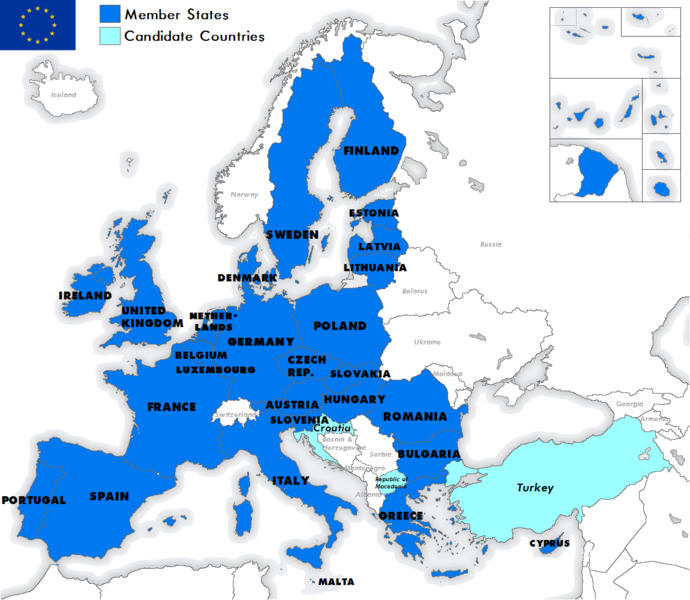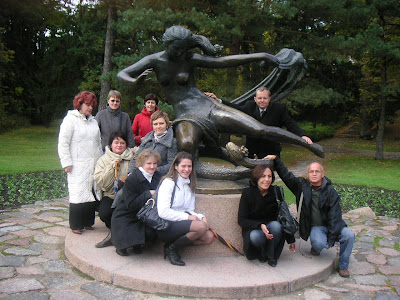 Federico García Lorca was born in 1898, in Fuente Vaqueros, a small village in Granada. His mother, Mrs. Vicenta Lorca was his first teacher. She inculcated his affection for music and poetry, for that, Lorca uses more his second surnames. His father Mr. Federico García was an accommodated farmer.
Federico García Lorca was born in 1898, in Fuente Vaqueros, a small village in Granada. His mother, Mrs. Vicenta Lorca was his first teacher. She inculcated his affection for music and poetry, for that, Lorca uses more his second surnames. His father Mr. Federico García was an accommodated farmer.
He learnt popular songs and since he was a child he was interested in romantic and classic literature.
Theatre was one of his favourite affection and he liked to act and to rehearsal theatre performances for his family and his friends. He loved puppets.
Lorca realized a travel around Spain between 1916 and 1917 with his teacher and other partners.
He met Antonio Machado in Baeza during this travel. His first book, “impressions and landscape” (1918), describing four travels. When he came back, Lorca left his studies of music and began to write poetry. He met the compositor Manuel Falla in 1917.
In 1919, Lorca went to Madrid in 1919 and he installed in the Students Residence, where he lived in 1928. He wears for the first time a theatre show: “El maleficio de la mariposa” in Madrid in 1920. The work failed. He continued to write poetry and he published in 1921”Book of poem”. This year, he started to write “Poema del cante jondo”.
In 1922, he organized with Manuel Falla “La fiesta del cante jondo”. It was celebrated in Granada.
He was killed in Fuente Vaqueros in August 1936 for his politic ideas and for his sexual condition.
Señorita of the Fan
The señorita
of the fan
goes over the bridge,
over the cool river.
The gentlemen
in their waistcoats
look at the little bridge
without railings.
The señorita
of the fan,
with skirts a-flying,
is seeking a husband.
The gentlemen
are already married
to tall blond ladies
of the white language.
Crickets are singing
in the west.
(The señorita
walks through the greenery.)
Crickets are singing
under the flowers.
(The gentlemen
go towards the north.)
Afternoon
The mistaken afternoon
was dressed in cold.
Behind the murky windowpanes
all the children watch
a yellow tree change
into birds.
The afternoon stretches out
along the river.
And a blush of apple
trembles in the roof tiles.
A Song Sung
In cold gray
the Griffon bird
was clothed in gray.
And there from little Kikiriki
whiteness and shape
were taken away.
To enter cold gray
I painted myself gray.
And how I sparkled
in the cold gray!
Snail
They have brought me a snail.
Inside it sings
a map-green ocean.
My heart
swells with water,
with small fish,
silvery, shadowy.
They have brought me a snail.
The Lizard is Crying!
Mr. Lizard is crying.
Mrs. Lizard is crying.
Mr. and Mrs. Lizard
in little white aprons.
Have gone and lost
their wedding ring.
Ah, their little leaden wedding ring,
ah, their little ring of lead!
A large sky without people
carries the birds in its balloon.
The sun, rotund captain,
wears a satin waistcoat.
Look how old they are!
How old the lizards are!
Oh, how they cry and cry,
Oh! Oh! How they go on crying!
A Little Song from Seville
Dawn is awakening
in the orange grove.
The little golden bees
are looking for honey.
Where will they find
the honey?
It's in the blue flower,
Isabel.
In the flower
of that rosemary yonder.
(A little chair of gold
for the Moor.
A chair of brass
for his wife.)
Dawn is awakening
in the orange grove.
Silly Song
Mama,
I wish I were silver.
Son,
you'd be very cold.
Mama,
I wish I were water.
Son,
you'd be very cold.
Mama,
Embroider me on your pillow.
That I will!
Right away!
Butterfly
Butterfly air,
what beautiful you are,
butterfly air
gold and green.
Butterfly air,
stay there, there, there! …
You aren’t wanted to stop,
not want to stop.
Butterfly air
gold and green.
Light of streetlight,
Butterfly air,
stay there, there, there! …
Stay there!
Butterfly, are you there?




























